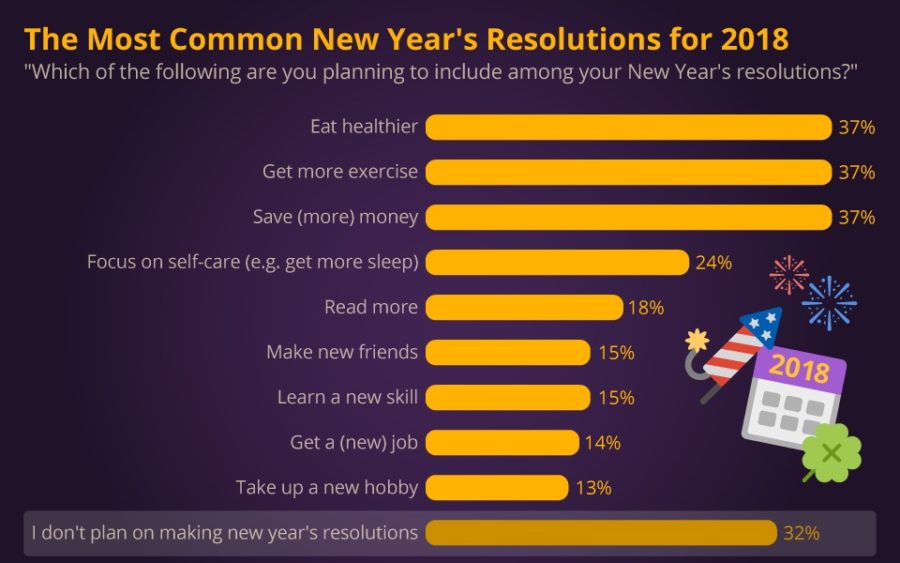How to keep your New Year’s resolutions from failing
Recent surveys report that the most popular resolutions of 2019 circle around improving health and self-care overall.
“New year, new me.” Everywhere on social media, people of all ages and backgrounds post their New Year’s resolutions, but how many will fulfill their goal at the end of the year?
Every year, millions of Americans make resolutions, but according to U.S. News & World Report, 80 percent of them fail by February. Things like dieting and exercising are among the more popular resolutions; however, a new Marist poll found “being a better person” at the top of the list this year.
Senior Kari Erickson chose a similar objective.
“My resolution is to be nicer to myself,” Erickson said. “Basically I mean taking care of myself as I would another person: sleeping well, eating well, drinking water and no more self-deprecation.”
But if you’re like most people, your resolve to become more organized, sleep better or get in shape likely dissipates within a month. Why? The reasons vary, but research suggests several common errors that obstruct the achievement of these goals.
- You have no social support. Ask your friends if they would like to be your gym or accountability buddy. If you know someone who shares your goal, coordinate time to work out together.
“You need people around to guide you on for support and make sure you’re following through with it, it’s as simple as that,” Talha Khan (12), whose goal for 2019 is to work toward a six-pack, said.
- You’re treating a marathon like a sprint. Instead of remodeling your entire diet overnight, try smaller, gradual changes. Want to lose weight? Start with something feasible like drinking more water the first week. The second week, eat three fruits and veggies every day. And the third week, eat a handful of protein for lunch and dinner.
- Your resolution is not specific enough. For example, decisions to “exercise more” or “lose weight” are just setting yourself up for failure; they are vague and lack concrete ways to mark progress. Instead, make your goal more specific, like running a local 5K or losing 10 pounds by a date marked in your calendar.
Following these suggestions will allow you to stay on task to accomplish these milestones. If you have been on track, reward yourself with a small token. By maintaining realistic resolutions, the probability that you will keep them throughout the year increases, incorporating healthy behavior into your life.
Your donation will support the student journalists of White Station High School. Your contribution will allow us to purchase equipment and cover our annual website hosting costs.


































